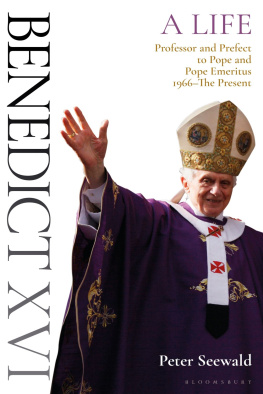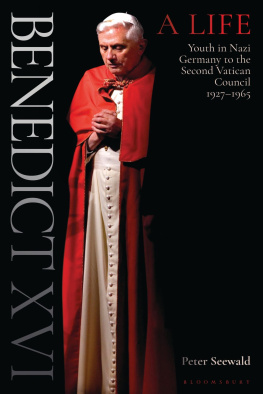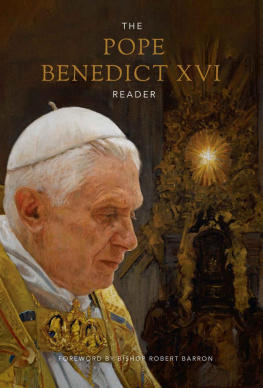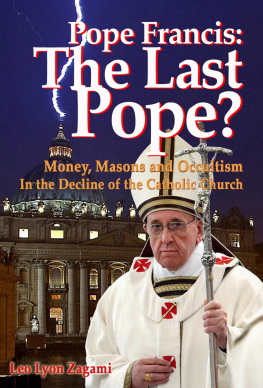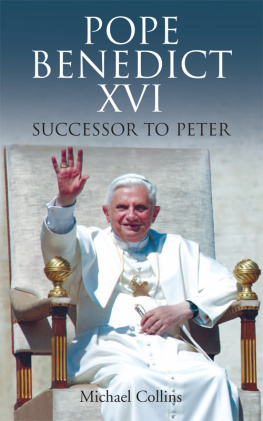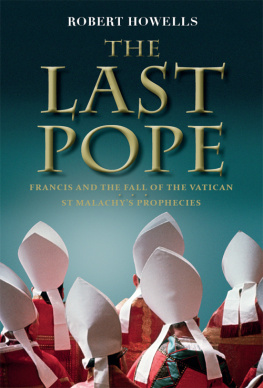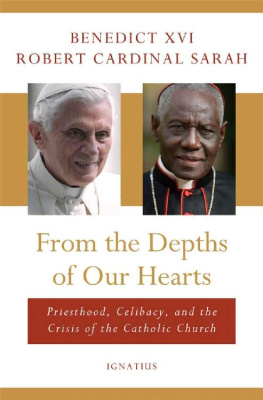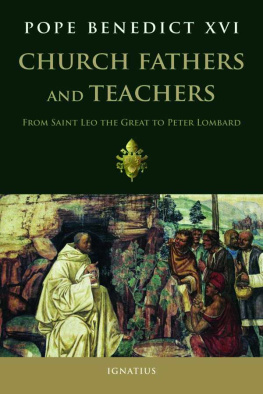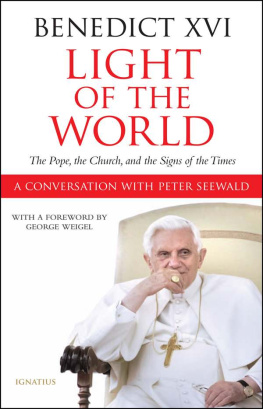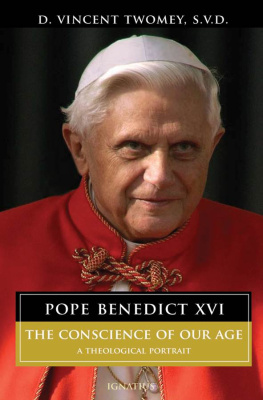Peter Seewald - Benedict XVI: A Life Volume Two: Professor and Prefect to Pope and Pope Emeritus 1966–The Present
Here you can read online Peter Seewald - Benedict XVI: A Life Volume Two: Professor and Prefect to Pope and Pope Emeritus 1966–The Present full text of the book (entire story) in english for free. Download pdf and epub, get meaning, cover and reviews about this ebook. City: London, year: 2021, publisher: Bloomsbury Continuum, genre: Non-fiction / History. Description of the work, (preface) as well as reviews are available. Best literature library LitArk.com created for fans of good reading and offers a wide selection of genres:
Romance novel
Science fiction
Adventure
Detective
Science
History
Home and family
Prose
Art
Politics
Computer
Non-fiction
Religion
Business
Children
Humor
Choose a favorite category and find really read worthwhile books. Enjoy immersion in the world of imagination, feel the emotions of the characters or learn something new for yourself, make an fascinating discovery.
- Book:Benedict XVI: A Life Volume Two: Professor and Prefect to Pope and Pope Emeritus 1966–The Present
- Author:
- Publisher:Bloomsbury Continuum
- Genre:
- Year:2021
- City:London
- Rating:3 / 5
- Favourites:Add to favourites
- Your mark:
Benedict XVI: A Life Volume Two: Professor and Prefect to Pope and Pope Emeritus 1966–The Present: summary, description and annotation
We offer to read an annotation, description, summary or preface (depends on what the author of the book "Benedict XVI: A Life Volume Two: Professor and Prefect to Pope and Pope Emeritus 1966–The Present" wrote himself). If you haven't found the necessary information about the book — write in the comments, we will try to find it.
The second volume of Peter Seewalds magisterial life of Pope Benedict covers the period from the Second Vatican Council (1965-8) to the present day.
Emeritus Pope Benedict commands both adulation and unremitting criticism. In this second volume of Peter Seewalds authoritative biography, the story runs from the Second Vatican Council (19658) that shaped Cardinal Joseph Ratzingers conservative ideas about the role of the Catholic Church, through his short, scandal-ridden papacy and unprecedented resignation. Volume II introduces readers to the contemplative Pope Emeritus living in the Vatican Gardens, contemplating the future of the Church and his controversial legacy within it.
We see how Benedict was influenced by the Vatican Council and the ensuing political unrest all over Europe in the 1960s to move from a liberal perspective on the Church and the modern world to one that was profoundly conservative. Appointed in 1981 as Prefect of the Congregation of Doctrine of the Faith, and quickly nicknamed Gods Rottweiler, he proved to be intransigent on the controversial issues of abortion, contraception, gay rights and gay marriage. But elected Pope in 2005, his tenure of office was so riven with shocking revelations of controversy and scandal that it seemed that by the time of his resignation in 2013 he was incapable of handling the complexities of the Church in the modern world.
Vatileaks, sexual abuse by priests, the Regensburg speech which became the spark of an eruption of anger and rage in the Muslim world all these hit the worlds media headlines.
Peter Seewald is the only person who is close enough to Benedict to assess the man himself and to uncover the truth about so many of the controversial issues surrounding this most controversial papacy. Seewald has already published two books of interviews with Benedict and this book is based not just on meticulous research but on many hours of recorded interviews with Benedict himself.
Peter Seewald: author's other books
Who wrote Benedict XVI: A Life Volume Two: Professor and Prefect to Pope and Pope Emeritus 1966–The Present? Find out the surname, the name of the author of the book and a list of all author's works by series.

